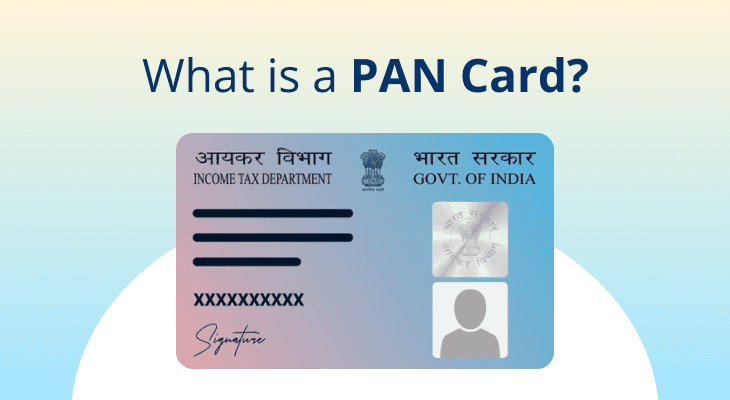
Table of content
Section 80DD & 80DDB Tax Benefits For Disabled Dependents & Critical Illness
Introduction To Tax Benefits Under Sections 80DD and 80DDB
A medical situation is challenging for everyone—it is both emotionally taxing and financially draining. While health insurance offers much-needed financial support in such times, the Income Tax (IT) Act, 1961 also provides tax relief through specific provisions. Section 80DD and Section 80DDB are two such provisions. They allow tax deductions to individuals who incur expenses for their disabled dependents or the treatment of certain specified diseases, respectively. Let’s explore these tax benefits in detail.
Section 80DD – For Disabled Dependents
Section 80DD of the IT Act allows individuals to claim a deduction for expenses incurred towards the maintenance or medical treatment of a disabled dependent. It also includes costs related to their training or rehabilitation. Additionally, payments made toward approved insurance schemes for their benefit are also covered.
A flat deduction of ₹75,000 is available under this section, irrespective of the actual expenditure. To be eligible, the dependent’s disability must be at least 40%. For dependents with a disability of 80% or more, the allowable deduction increases to ₹1.25 lakh.
Let’s understand this with the help of an example.
Atul takes care of his mother, who is severely disabled (more than 80%). He spends ₹1.2 lakh on her treatment in a year. Despite spending only ₹1.2 lakh, Atul can claim a flat deduction of ₹1.25 lakh.
To claim this 80DD deduction, the IT Department recommends filing Form 10-IA before filing the income tax return. This form certifies the nature and extent of the disability. Although it can be submitted later, doing so in advance helps avoid inconveniences later.
Additional Read: Income Tax: Basics of Income Tax for Beginners | Mirae Asset
Disabilities Covered Under Section 80DD
The following disabilities are covered under Section 80DD of the IT Act:
- Mental illness
- Hearing impairment
- Mental retardation
- Cerebral palsy
- Leprosy-cured
- Autism
- Loco motor disability
- Blindness
- Low vision
These conditions must be certified by a civil surgeon or Chief Medical Officer (CMO) at a government hospital, or a neurologist with a Doctor of Medicine (MD) in neurology. In the case of children, a pediatric neurologist holding an equivalent degree is also acceptable.
Section 80DDB – For Specified Critical Illnesses
Section 80DDB allows individuals to claim a tax deduction for expenses incurred on the medical treatment of certain specified critical illnesses for themselves or their dependents—spouse, children, parents and siblings.
The maximum deduction that can be claimed under this section is ₹40,000 for non-senior citizens and ₹1 lakh for senior citizens. However, it is important to note that the deduction is allowed only after accounting for any insurance reimbursement.
For instance, Medha, aged 45, incurred ₹1 lakh in medical expenses in a year and is eligible for a deduction under section 80DDB. Her insurance policy covered ₹25,000. Therefore, she can only reduce her taxable income by ₹15,000 (₹40,000 - ₹25,000), even though the maximum allowed is ₹40,000.
As in the case of Section 80DD, a certificate from a specialist doctor is required for claiming deductions under Section 80DDB.
Specified Diseases Under Rule 11D Of The IT Act
Disease category | Certifying authority |
|---|---|
Neurological diseases, where the disability is at least 40%. These include:
| Neurologist with a Doctorate of Medicine (D.M.) in Neurology |
Malignant cancers | Oncologist with a D.M. in Oncology |
Full blown Acquired Immuno Deficiency Syndrome (AIDS) | Specialist with a post graduate degree in General or Internal Medicine |
Chronic Renal Failure | Nephrologist with a D.M. in Nephrology or a Urologist with a Masters of Chirurgiae in Urology |
Haematological disorders, such as:
| Specialist having a D.M. in Haematology |
In all these cases, certification can also be obtained from professionals holding equivalent degrees recognised by the Medical Council of India.
Key Differences Between Section 80DD And Section 80DDB
Although both sections offer tax relief for medical expenses, they have some notable differences. Here’s a comparison.
Particulars | Section 80DD | Section 80DDB |
|---|---|---|
Coverage for | Dependent with disabilities | Self or dependents with specified illnesses |
Deduction type | Flat deduction | Actual expenditure, after accounting for insurance |
Deduction limit |
|
|
Impact of insurance | No effect on deduction amount | Maximum deduction is reduced by the amount reimbursed by the insurer |
Diseases covered | Mental illnesses, autism, blindness, etc. | Dementia, Parkinson’s, AIDS, etc. |
Conclusion
Both Section 80DD and Section 80DDB provide tax relief to taxpayers burdened with significant medical expenses. While Section 80DD focuses on long-term patient care, Section 80DDB helps with the high costs of critical diseases. Understanding the difference between the two sections can help you manage healthcare expenses more effectively while also saving on taxes.
Additional Read: What is a Tax-Saving FD? Benefits, Interest & 80C Deductions
Deductions under Section 80CCD of Income Tax in India
Section 80E of Income Tax: Education Loan Interest Deduction


